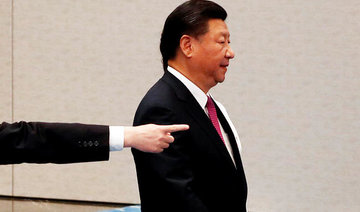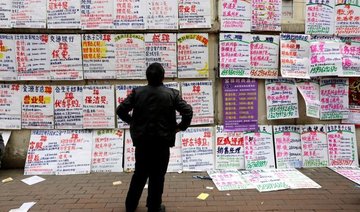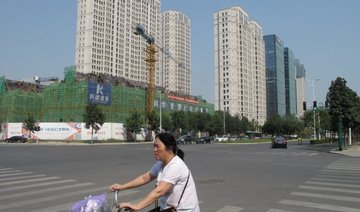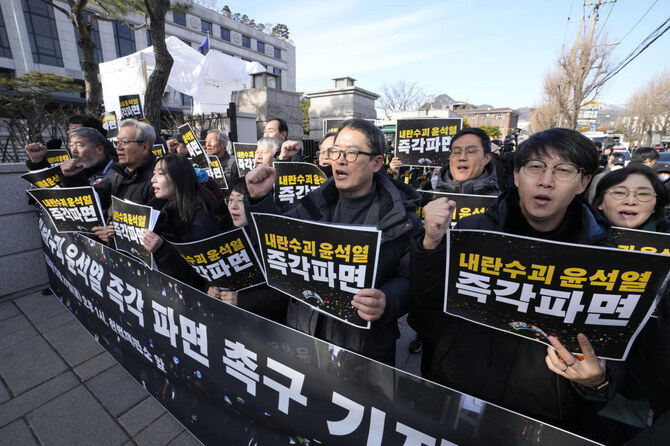BEIJING: President Xi Jinping was formally handed a second term Wednesday, with no clear successor emerging in a revamped ruling council, cementing his grip on power and setting the stage for him to dominate China for decades to come.
In a highly choreographed event, Xi led the new members of the elite Politburo Standing Committee in front of television cameras at Beijing’s massive Great Hall of the People after their selection by 204 party officials in a closed-door vote.
Xi, 64, secured a second five-year term as general secretary of the Communist Party after his eponymous political theory was enshrined in its constitution, giving him an inviolable mandate to rule and possibly positioning him to retain power for much longer.
He was also reappointed head of the country’s Central Military Commission.
Premier Li Keqiang, 62, retained his seat on the seven-member committee while five other men — all little known outside China — replaced comrades who had reached an informal retirement age of 68.
In a speech, as the other members stood expressionless in dark suits, Xi heralded a “new era” for the country under his rule and said the party “must get a new look and more importantly make new accomplishments.”
But the new ruling council looked decidedly old, raising doubts that any could succeed Xi.
“Xi Jinping doesn’t want to share power. He doesn’t want someone breathing down his neck, preparing the succession,” Jean-Pierre Cabestan, China specialist at Hong Kong Baptist University, told AFP.
“He wants to keep pressure on everybody and enjoy power for five or 10 years without having his hands tied.”
All the committee’s members are at least 60 years of age. Under the current rules, they would be too old to serve the customary two terms as the party’s leader at the next congress in 2022.
Xi was elevated to the committee in 2007, when he was 54, and succeeded Hu Jintao as general secretary and president five years later.
The new committee members are Xi confidant Li Zhanshu, 67, vice premier Wang Yang, 62, leading Communist Party theoretician Wang Huning, 62, party organization department head Zhao Leji, 60, and Shanghai party chief Han Zheng, 63.
Despite their promotion to the nation’s highest leadership circle, they are likely to have much less influence than their predecessors under a newly empowered Xi.
His reappointment capped a twice-a-decade congress of the Communist Party that gave him a freer hand to accomplish his ambition of turning China into a global superpower with a world-class military by mid-century.
The constitutional amendment, which the congress passed Tuesday, has put Xi in the rarefied company of the nation’s founder Mao Zedong, and Deng Xiaoping, the architect of its economic reforms.
“He will use this boost to push forward his ambitious agenda,” said Matthias Stepan of Germany’s Mercator Institute for China Studies.
“It will guarantee him a place in the history books.”
The accolade firmly establishes Xi as the country’s locus of power, potentially upending the collective model of leadership promoted by Deng and embraced by Xi’s two predecessors, Hu Jintao and Jiang Zemin, who both stepped down after two terms.



























